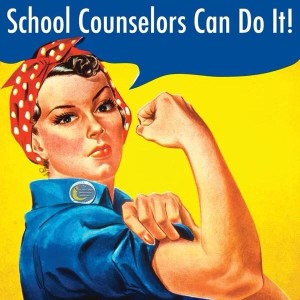Here is one Travel Season Tip sure to make your upcoming school visits the most successful ever. And no, it’s not a new set of lightweight, heavy-duty luggage (although that is a good idea, too.)
Start now building your relationship with the high school guidance counselors at the schools you’ll be visiting.
Guidance counselors are key influencers for college-bound students. They are also often the most overworked and underappreciated educators on the team. They are often nearly impossible to reach on the phone and can be difficult to track down on campus because they wear many hats. A counselor I grew to know well during my own school visit days, once described her typical day, “Somewhere between counseling a student with depression, meeting with the parents of a great kid who is flunking four classes, and breaking up a food fight in the cafeteria, I had an hour to offer guidance to four seniors who are starting to navigate the college search process.”
“How,” you ask, “do I build a relationship with a person so completely covered up?”
First, do your homework.
Before you arrive on campus, learn all you can about the school you are visiting. You should be able to identify strengths that match up well to your college or university. The high school has an award winning band/art/science program? Your college just happens to have one the best higher ed programs in the state/region/country.
Don’t just concentrate on the high school’s strong points, though. Make note of what is missing from the school’s offerings and fill that gap. Good counselors often know of students who have special talents or interests in areas that aren’t being served at the high school level.
Stand out from the crowd.
If you want your voice to be heard, be sure you are not saying the SAME thing as every other college rep they hear from. Yes, all those facts about your school are important; class sizes, top majors, new buildings, etc., but your face time with the counselor needs to concentrate on things that can’t be read about in a handout or on your website.
Focus instead on those attributes that make your college unique. Perhaps it is your “Great Books” program for avid readers, your acclaimed science department with the state-of-the-art labs, or your dynamic career services facility. What special niches can you fill? Find out with questions such as:
- Are there specific college programs that would interest some of your students that you have had a hard time finding?
- Do you have a student with particular passion we might be able to help?
- How can I make your job easier?
Every high school counselor I ever met enjoyed hearing (and often sharing) stories of successful placements. When possible, update them on some of their former students who are now enjoying college life at your school. Offer specific examples of students from all walks of life who have flourished in their new college environment.
Stay Top of Mind.
Follow up and follow through. Showing your appreciation with a handwritten thank you note will make you memorable and is an opportunity to highlight the unique values of your college. Keep notes about specific areas of interest you have uncovered in your conversation and follow up via email with any relevant news. Involve department heads and key administrators in sending personal notes about new developments on campus.
Daniel R. Porterfield, Ph.D., the highly-respected president of Franklin and Marshall College, shared a powerful message in The Huffington Post that serves as a reminder to all of us on the impact of guidance counselors. “I like to spend a few minutes writing short notes to the high school counselors who helped our soon-to-be graduates chart their course to F&M,” he writes. “If you think about it, these educators are the unsung heroes of so many college success stories. They listen to students’ aspirations and motivate them to consider carefully what kinds of institutions can help them grow and achieve their goals. They educate families about sources of financial aid and help them complete the necessary forms. They spend hours writing thoughtful recommendations that showcase each student’s unique strengths and assets. And they inform themselves about everything relevant to their students’ college choices and constantly research the qualities and resources of all the schools their students might attend.”
There are communication techniques your staff can learn that will help them feel confident about reaching out to prospective students to ask the right questions. This is one of the core techniques we teach in the Interactive Counselor Training Workshops we hold on college campuses throughout the country. It is also a key component of YES, our Yield Enhancement Tool. Let me show you how we can help you. Please call or email me for more information. Continue the conversation on Twitter @LongmireCo. Be sure to Subscribe to Versions of Conversion today so you don’t miss any of this highly-valuable information.
 Karen Full is a highly-respected higher education professional who has held positions in admissions and enrollment management at several institutions in the Midwest and Florida. With her vast experience working with large and small, public and private colleges, Karen brings a valuable perspective to her role as an Enrollment Strategist at Longmire and Company. Call Karen at 913/492.1265 x.711 or email her at kfull@longmire-co.com. Follow Karen on Twitter @KarenAFull.
Karen Full is a highly-respected higher education professional who has held positions in admissions and enrollment management at several institutions in the Midwest and Florida. With her vast experience working with large and small, public and private colleges, Karen brings a valuable perspective to her role as an Enrollment Strategist at Longmire and Company. Call Karen at 913/492.1265 x.711 or email her at kfull@longmire-co.com. Follow Karen on Twitter @KarenAFull.

